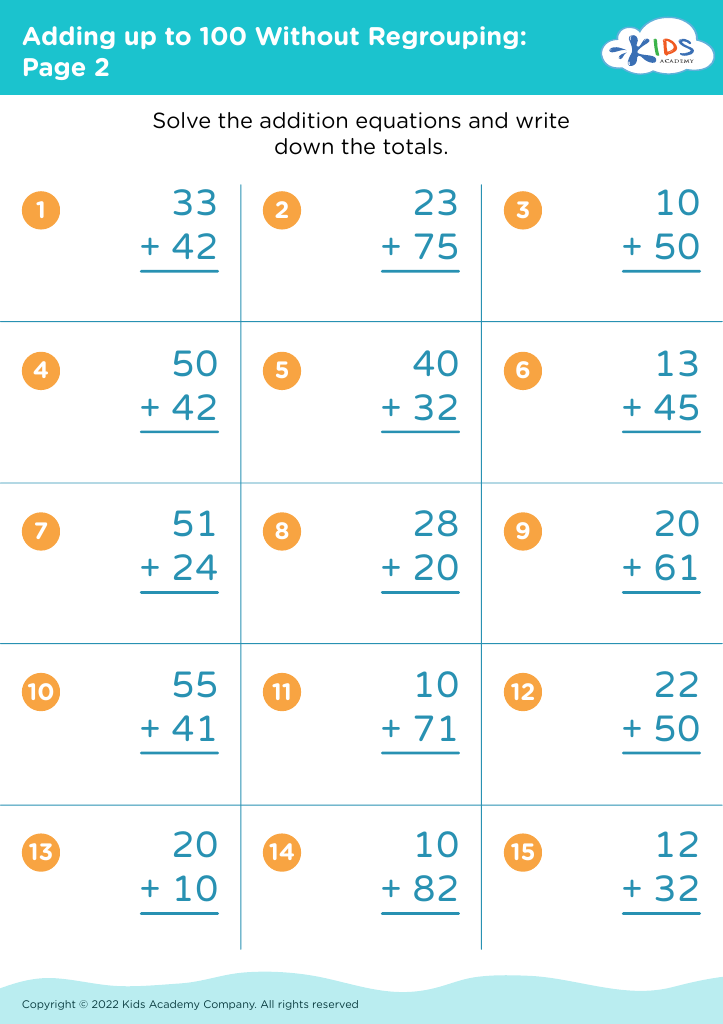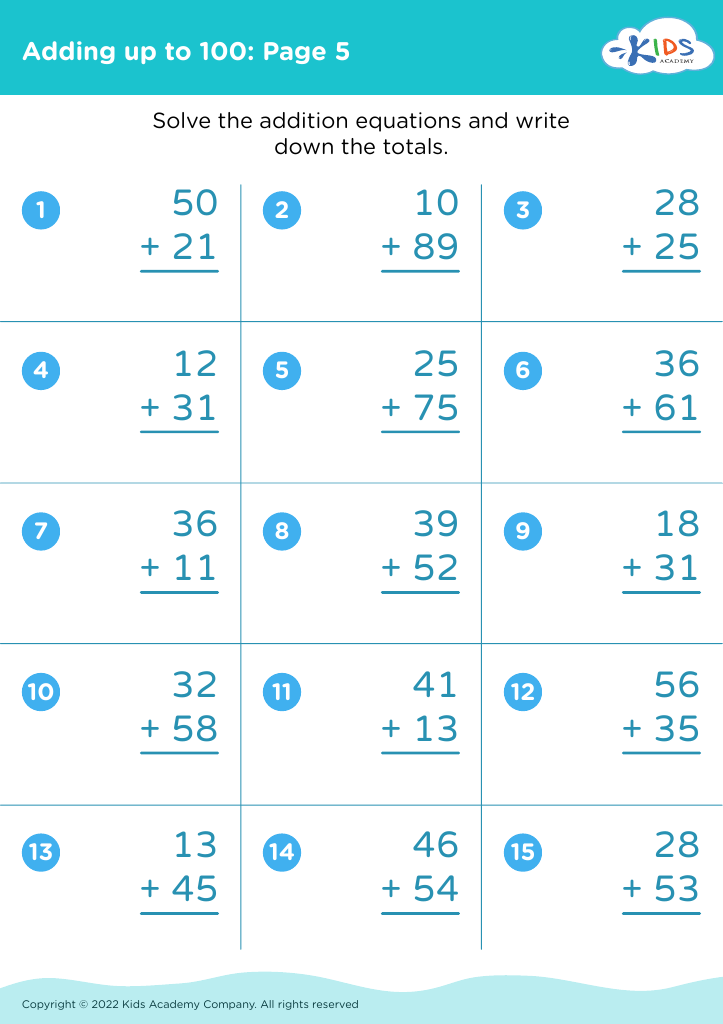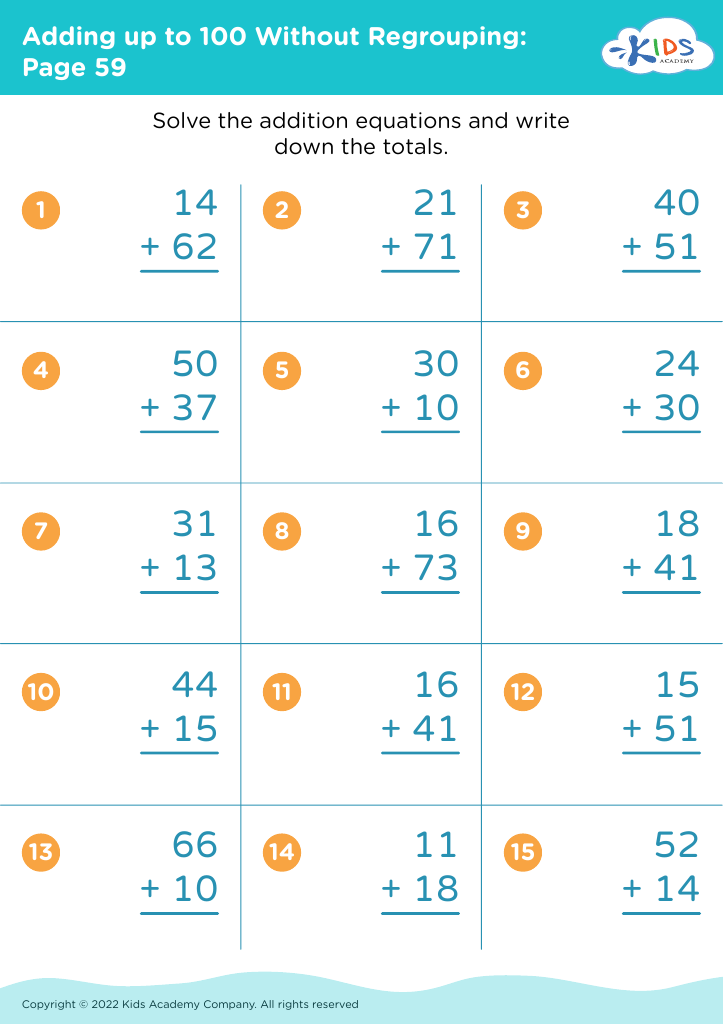Following instructions Adding up to 100 Worksheets for 8-Year-Olds
4 filtered results
-
From - To
Introduce your 8-year-olds to the fun world of math with our "Following Instructions Adding up to 100 Worksheets." These engaging and educational worksheets are designed to develop your child's math skills while honing their ability to follow detailed instructions. Each worksheet offers a variety of problems designed to reinforce additions up to 100, boosting their confidence and proficiency. Perfect for both classroom and home use, these worksheets make learning enjoyable by incorporating colorful visuals and interactive activities. Help your child excel in math with our easy-to-use, expertly crafted resources that make mastering addition a rewarding experience.
Following instructions and adding up to 100 are foundational skills that play a crucial role in an 8-year-old child's cognitive and academic development. When parents and teachers prioritize these skills, they lay the groundwork for future success in both academic and everyday settings.
Following Instructions: Teaching children to follow instructions is central to their ability to learn new tasks, stay organized, and develop discipline. It boosts their comprehension levels and helps them decode complex information more efficiently. This skill fosters a sense of responsibility and independence, enabling them to complete tasks, whether it's an assignment, project, or even everyday routines. It also minimizes misunderstandings and mistakes, ensuring that children can respond accurately to requirements in different contexts.
Adding Up to 100: Mathematical proficiency begins with strong numeracy skills. Being able to perform addition up to 100 allows children to handle more sophisticated math problems as they progress through school. It builds confidence in their math abilities and fortifies critical thinking skills by involving pattern recognition, number sense, and mental calculation. Additionally, it bridges students to other key math topics like subtraction, multiplication, and division, which are essential for higher-level math classes.
In summary, focusing on these skills not only supports academic success but also nurtures important life skills, empowering children to approach future challenges with confidence and competence.







%20(1).jpg)











